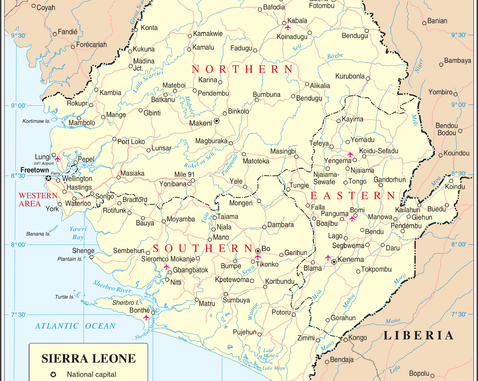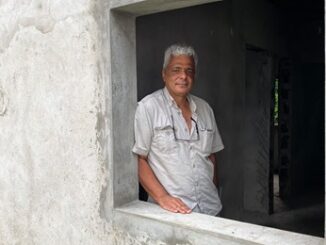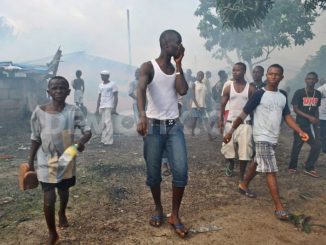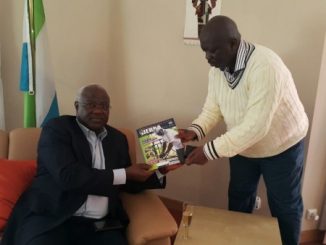
WASHINGTON, March 31, 2014 – The World Bank’s Board of Executive Directors has approved support for Sierra Leone’s efforts to create a strong social safety net system that will identify and assist poor and vulnerable households, beginning with a pilot program covering four districts and 12,000 households.
The IDA* grant of US$7 million to the Sierra Leone Social Safety Nets Project will help set up the building blocks for a nationwide social safety net system that can be used to deliver cash transfers to the poorest households, enabling them to buy food, send children to school, and protect assets such as livestock.
“While economic growth has been strong in Sierra Leone, poverty and food insecurity have remained very high and human development indicators such as maternal health and survival are weak,” said Francis Ato Brown, World Bank Country Manager for Sierra Leone. “This is where a social safety net system comes in very useful, because it can reach the poorest families and help those who have been left behind.”
The pilot program will make direct cash transfers to households in Kono, Bombali, Moyamba and Western Rural districts, usually to women, who tend to spend the money in ways that benefit the family. Eventually, the system can be scaled up to all 14 of Sierra Leone’s districts, reaching poor families across the country.
“This project adequately reflects the aspirations of the Agenda for Prosperity and it will be a remarkable milestone in enhancing the efforts of government to significantly reduce the number of Sierra Leoneans below the poverty line; it will not only put food on the table of the poorest, it will also enable them to access social services like health and education”, said Saidu Conton Sesay, The Commissioner, the National Commission for Social Action.
The project will also help create systems for targeting and registering eligible households, making payments that are electronic to the extent possible, redressing grievances, and generating management data and information. These components can be used for the social safety net as well as other programs.
“Sierra Leone is now committed to move beyond expensive emergency aid during crises to a well-planned social safety net system that will help reduce poverty and promote social cohesion,” said Suleiman Namara, World Bank Task Team Leader for the project. “The project will benefit from the experience and lessons learned in many African countries that have been setting up similar systems.”
———————————————————————————————————————————————-* The World Bank’s International Development Association (IDA), established in 1960, helps the world’s poorest countries by providing loans (called “credits”) and grants for projects and programs that boost economic growth, reduce poverty, and improve poor people’s lives. IDA is one of the largest sources of assistance for the world’s 81 poorest countries, 39 of which are in Africa. Resources from IDA bring positive change for 2.5 billion people living on less than $2 a day. Since 1960, IDA has supported development work in 108 countries. Annual commitments have increased steadily and averaged about $15 billion over the last three years, with about 50 percent of commitments going to Africa.
Contacts:
In Sierra Leone: Peter Ghanda (+232)76 661 860, pghanda@worldbank.org
In Washington: Kavita Watsa (202) 458-8810, kwatsa@worldbank.org
To see more of the World Bank Group’s development work in Sierra Leone, please visit www.worldbank.org/sierraleone
Twitter: http://www.twitter.com/worldbankafrica
YouTube: http://www.youtube.com/worldbank





Leave a Reply